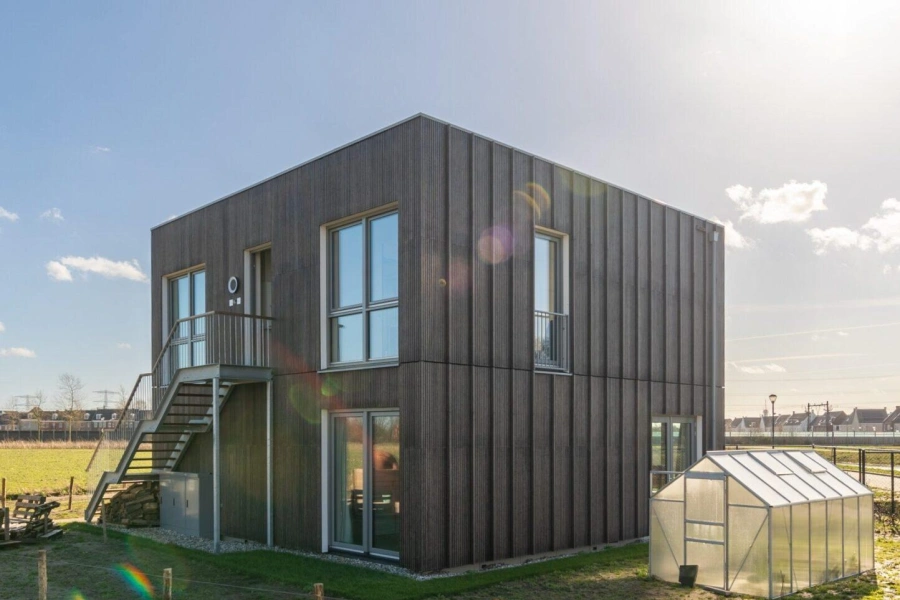Creating local energy hubs where we can manage and control energy smartly is the goal, says Daan van Lange, Senior Investment Manager & Teamlead Climate Tech at the Brabant Development Agency (BOM). "This is one of the essential building blocks for a future-proof and sustainable energy grid."
The current energy system is still largely centrally organized: energy is generated in a few large places and then distributed via the grid. This model is reaching its limits now that sustainable sources, such as solar and wind, have an increasingly larger share in the energy mix. These sources are not only very volatile, but they are also widely dispersed. On top of that, there is the increased demand for electricity. Centrally controlling such a diverse landscape leads to bottlenecks, such as grid congestion and loss of flexibility.
Not a goal, but a means
A decentralized energy system is therefore crucial. Van Lange: "Not as an end in itself, but as a means to enable sustainable energy supply. By generating, storing, and managing energy locally, we can increase the stability and resilience of the network."
This creates a system that can better handle the dynamics of renewable sources and where users actively contribute to balance and efficiency. Integer Technologies contributes to this within buildings.
Operating in harmony
The Eindhoven startup developed a smart system that no longer lets various devices and installations in a building, such as heat pumps, air conditioners, solar panels, and batteries, operate independently, but in harmony. "In many offices, the air conditioning/heating is turned on at the start of the day, all EVs are charged, while the solar yield is still very limited," says Van Lange. "Integer's system coordinates this and optimally utilizes the existing connection."
The result? Sustainability, cost savings, and less peak load on the grid.
A good example is the Mercado building in Eindhoven, the new city office. The municipality wanted to get off gas, but the connection capacity was too limited for heat pumps with traditional control technology. Thanks to Integer Technologies' predictive algorithms, the heat pumps could still be efficiently controlled, making sustainability possible without expensive batteries, grid reinforcement, or gas connection.
Flexibility as the key
According to BOM, this flexibility is the key to decentralized energy supply. "Flexibilizing the grid is crucial," emphasizes Van Lange. "Decentralized generation, usage, storage, and distribution are all necessary. Integer shows that software and smart control play a decisive role in this. Their solution will not completely solve grid congestion, but it is an important part of the puzzle. And it is ready to be deployed."
Integer also targets the market of small and medium-sized office buildings, where there is often no budget for expensive climate software. They offer their solution through installers, complete with Integer Link and a digital dashboard. For installers, this means more efficient remote management, lower costs, and even predictive maintenance.
From student team to promising company
The company originated from the student team CASA of the TU/e, which wanted to design the most sustainable and cost-efficient house. The students soon realized that no installer had software to manage energy integrally. Integer fills that gap. They are now gradually conquering the SME building market, supported by investors such as Lumo Labs, VP Capital, and now also BOM.
For BOM, the investment in Integer is more than just support for a promising company. It fits into a larger strategy: helping Brabant move towards a decentralized energy system that can withstand the increasing demand for electricity and the volatility of renewable energy.
BOM as a driver
"The Dutch energy system is locked due to grid congestion," says Van Lange. "We cannot wait for a silver bullet. Laying new cables takes too long. Therefore, we must now embrace solutions that are commercially available. Integer is a perfect example of that."
With this investment, BOM shows that it is an organization that tackles issues around decentralized energy integrally and helps companies with energy solutions, such as Integer, scale up. BOM will widely communicate this story, including with a position paper on grid flexibility during the Energy Trade Fair (Vakbeurs Energie) in October 2025, where both BOM and Integer will present their vision.
What Integer proves at the building level, BOM wants to extend to the regional and national energy grid. "Integer teaches buildings to manage their own energy household smarter," concludes Van Lange. "We need exactly that same intelligence to make the grid of Brabant and far beyond future-proof. This shows that Brabant not only participates in the energy transition but can also drive it."
Learn more

